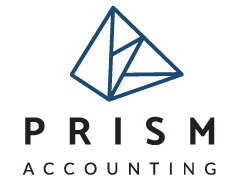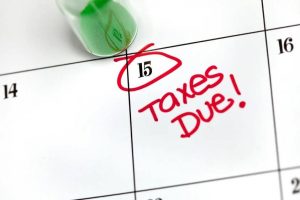As the end of 2020 financial year is approaching, we are sharing some simple yet effective tax strategies for Salary Earners to implement before 30 June 2020.
Home Office Expenses
If you are required to work from home, you can claim deduction for additional running expenses based on set rate of 52 cents per hour. This rate covers additional expenses for electricity, gas heating, decline in value and costs of repairs of home office furniture. This method does not include depreciation of your work-related equipment such as laptops, computers, phones etc.
For employees working from home during Covid-19, the ATO have introduced the Shortcut Method allowing you to claim 80c per hour working from home during the period from 1 March 2020 to 30 June 2020. Keep in mind, that the Shortcut method include ALL of your work-related home expenses, including decline in value of your work-related equipment, phone and internet expenses. If you claim these expenses separately based on the actual business use of the equipment, you are likely to be better off choosing to use the Flat Rate calculation of 52 c per hour.
Regardless of the method you choose, keep records of the hours working from home to ensure you do not miss out on home office expense deduction.
Work-Related Car Expenses
If you use your car for work-related travel (not including travel between home and usual workplace), you may be entitled to claim car expenses using of the two methods:
1) the cents per km (at the rate of 68 cents for 2020 Financial Year) capped at 5000km; and
2) the logbook method.
The logbook method allows you to claim business-related percentage of total car running costs (such as fuel, registration, insurance, maintenance), depreciation for decline in value of the car (up to a certain limit), finance costs or leasing charges. If you use your car for work-related travel a lot, the logbook method generally provides much better tax outcome.
If you plan to claim expenses under the logbook method in 2020 for the first time, you need to start maintaining your logbook records before the end of financial year. The logbook is valid for 5 years. If your most recent logbook is older than 5 years, you need to get a new logbook.
If using cents per km method, you still need to keep records (e.g. diary expenses) to substantiate how you worked out your actual or estimated work-related kilometres for the year.
Employee Share Schemes
If you are provided with shares (or rights to acquire shares) in the company you work for as part of your remunerations, you will generally be taxed on the amount of discount you receive (the difference between market value and the amount you pay to acquire the interests). You need to be mindful that even though you are not being paid cash, you will have to pay tax on values of the benefits you receive under these schemes.
If you are provided ESS interest under tax-deferred scheme, you will be assessed on market value of these interests, reduced by costs, in the year when the taxing point occurs (e.g. when the shares vest). You may consider disposing your shares to free up cash for paying tax (unless the interests are subject to Start-Up Concession, in which case you must satisfy minimum holding period for the concession to apply). If you dispose of your tax-deferred ESS interests withing 30 days, the new deferred taxing point will be the date of sale.
Regardless of whether you sell these interests or not, as Employee Share Schemes are not subject to PAYG withholding by employers, it recommended that you put aside a percentage of ESS income based on your marginal tax rate to pay the resulting extra tax liability. If you have a home loan with an offset account, consider putting the money in the offset account to minimise non-deductible interest you pay on you home loan.
Make Personal Super Contribution
Making Personal Tax Contribution is one of the most effective tax strategies, both for reducing tax and for maximising retirement savings. Concessional Contributions received by your Super Fund will be taxed at 15%, whilst the deduction will result in tax saving at your marginal tax rate.
If you earn adjusted taxable incomes over $250,000 in 2020, you will be subject to additional tax on Superannuation Contributions at 15% (Div 293 Tax), making the total tax payable on your concessional Super Contributions 30%. If you are subject to Div 293 Tax, making personal super contribution will still result in tax saving of 17% (30% vs 47%) provided you do not exceed your concessional super contribution cap.
Concessional Super Cap will remain $25,000 in 2020. Please note, the cap includes superannuation contributions paid to your super fund by your employer, so these payments need to be taken into account when calculating your maximum amount of personal super contribution. If you exceed your concessional contribution cap, the excess amount will be added to your assessable income and will be subject to Excess Contribution Charge.
Concessional Contribution Carry Forward Rule
The law has recently been changed to allow taxpayers to carry forward their unused concessional contribution balances on rolling basis for up to five years.
If you did not fully utilise your Concessional Super Contribution Cap of $25,000 in 2019 financial year, you may be able to carry forward the unused portion to the following years. The first year, in which you will be able to take advantage of catch-up contributions is 2020. This is in addition to your contribution cap of $25,000 in 2020.
To be eligible to utilise your carry-forward balance, your Total Super Balance must be under $500,000 on 30 June prior to the year in which your catch-up contribution is made.
If you want to take advantage of tax-deductible super contributions in the current financial year, your super contribution must be received by your super fund by 30 June 2020. You must also complete and lodge a Notice of Intent to Claim with the Superfund and receive back a Deduction Confirmation Letter before you can claim the deduction in 2020 Tax Return.
Covid-19 Early Release of Super
If your employment has been affected by Covid-19, you may be able to access some of your superannuation early.
If you are a citizen or a permanent resident of Australia or New Zealand, you can apply for up to $10,000 in 2020 financial year (by 30 June 2020), and up to a further $10,000 in 2021 financial year (between 1 July and 24 September 2020). If you are a temporary resident, you may be eligible to apply for up to $10,000 to be release in 2020. To be able to access your super early, you need to satisfy one or more eligibility criteria.
Unlike amounts released from super on compassionate ground, any amounts paid out under Covid-19 Early Release measure will not be subject to income tax. However, there are implications of accessing your super early. You should consider your circumstances carefully to determine if the early release is right for you.
Caution:
The Covid-19 early release measure created an apparent loophole in the tax system, which some unscrupulous advisers tried to promote. Even though the legislation does not include any built-in anti-avoidance provisions preventing taxpayers from re-contributing the amounts released from super under Covid-19 measure, we strongly advise against doing so for the purpose of obtaining tax advantage. Such arrangements can potentially trigger Part IV Anti-Avoidance provisions and are likely to be scrutinised by the ATO.
Check out Tax Tips for Salary Earners for further suggestions on how to minimise your tax.
These are some of the generic tax strategies you may consider implementing before 30 June. For tax planning and ministration advise tailored to your circumstances, speak to our consultants.
Disclaimer: All the information provided on this website is of general nature and does not constitute tax, legal or financial advice. It does not take into account your personal circumstances and is not intended to replace consultation with a qualified professional.







